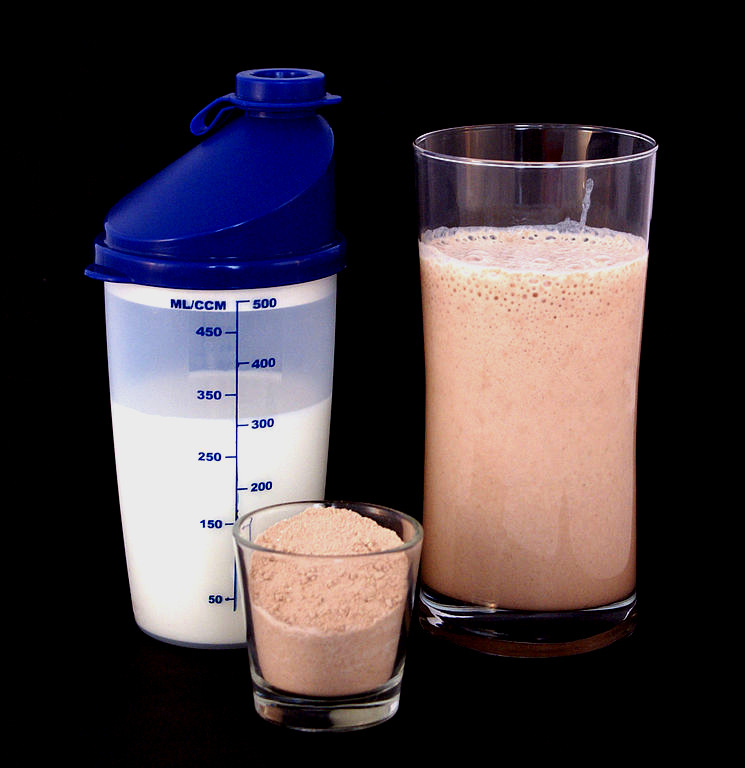Shakil Mirza | Contributor
Featured Image: Protein powder is a popular, cost-effective solution for students and gym-goers. | Courtesy of Wikimedia Commons
As the new school year begins, hundreds of York students will be lining up to renew their gym memberships, in hopes of balancing fitness with their hectic academic schedules.
Some may have plans to bulk up for the winter season, start shredding and lowering their body fat, or build lean muscle. Whatever those goals may be, they can’t be attained without the foundations of a healthy diet.
Protein is a nutritional necessity for the human body, with daily portions corresponding to a person’s weight and exercise regime. Protein is an essential building block for the growth and repair of cells, as during digestion, the stomach breaks it down into amino acids for enzymes, in order to create bonds for new chains to be made for reuptake into the bloodstream.
There are three protein sources suggested by dietary guidelines—animal, dairy, and plant-based foods. Protein can be found in foods such as chicken, eggs, lentils, greek yogurt, and nuts. However, many busy students and frequent gym-goers will attest that their routine includes protein supplements, either in the form of shakes or as a part of their cooking regime.
The most common dairy source of protein is protein powder—the separation of milk into two constituents of whey and casein. The liquid whey is then pasteurized into a powder form. The body contains 20 amino acids, and complete protein powder contains nine of the essential amino acids needed for synthesis of muscle growth, which can only be found in food.
Taking protein powder before a workout will help lower the “wear-and-tear” on the muscles during training and after a workout, as the muscles can absorb protein powder for faster recovery and maintenance.
“I usually take protein after my workout within 40 minutes, since it’s fast digesting and goes to those broken muscle fibers,” explains Neil Ghosh, a fifth-year Finance major. “I just started taking protein powder after about a year without it, and I can say it does help with recovery and soreness. To gain muscle you need to have 1-1.5 grams of protein per pound of bodyweight, so that extra 25 grams of protein from the powder definitely helps.”
Protein powder is regularly used as an adequate supplement and additional source, contributing to a healthy diet, or by supplying an extra boost that wouldn’t be fulfilled through other sources of food.
Brandon Rutherford, a fifth-year Accounting student, says: “I use protein powder because I have a target for daily consumption, which is 180 grams, and powder is cheaper per gram, which helps me hit those numbers. However, it’s not my sole source of protein.”
Protein powder is cost-efficient, and for students who are on a budget and can’t make the time to prepare meals during the day, this can supplement their meals with equivalent scoops. It works to make you feel full longer, subsiding your urge to snack throughout the day. Plant-based powder, which includes soy, plant, rice, or hemp protein, can be used alternatively as an organic source to help build lean muscle.
Suleimon Raji, a fourth-year Kinesiology student, adds: “I used it because I was told by peers that it helps build muscle, and everyone else was doing it. When I was using it, I noticed that my endurance level was way higher compared to when I didn’t use shakes, and that it was very beneficial at the start of workouts. The only benefit I liked while using it was for the endurance and energy boost.”
Protein powder, on average, contains between 30 to 35 grams of protein, which is equivalent to about four ounces of chicken breast. However, there is such thing as too much of a good thing.
“Protein powder is good for efficiency and quick consumption. Despite that, no supplement can replace real food,” says Rutherford.
Knowing how much protein you should be consuming is important, as there is a finite amount of protein your body can process. Excess protein is filtered through the kidneys and is expelled during urination (in other words, you’re literally pissing your money away).


